456 start with S start with S
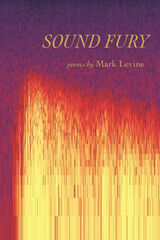
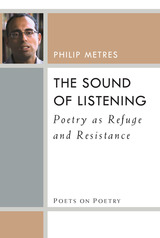
Philip Metres stakes a claim for the cultural work that poems can perform—from providing refuge to embodying resistance, from recovering silenced voices to building a more just world, in communities of solitude and solidarity. Gathering a decade of his writing on poetry, he widens our sense of poetry as a way of being in the world, proposing that poems can offer a permeability to marginalized voices and a shelter from the imperial noise and despair that can silence us. The Sound of Listening ranges between expansive surveys of the poetry of 9/11, Arab American poetry, documentary poetry, landscape poetry, installation poetry, and peace poetry; personal explorations of poets such as Adrienne Rich, Khalil Gibran, Lev Rubinstein, and Arseny Tarkovsky; and intimate dialogues with Randa Jarrar, Fady Joudah, and Micah Cavaleri, that illuminate Metres’s practice of listening in his 2015 work, Sand Opera.

An illuminating new study of modern Polish verse in performance, offering a major reassessment of the roles of poets and poetry in twentieth-century Polish culture.
What’s in a voice? Why record oneself reading a poem that also exists on paper? In recent decades, scholars have sought to answer these questions, giving due credit to the art of poetry performance in the anglophone world. Now Aleksandra Kremer trains a sharp ear on modern Polish poetry, assessing the rising importance of authorial sound recordings during the tumultuous twentieth century in Eastern Europe.
Kremer traces the adoption by key Polish poets of performance practices intimately tied to new media. In Polish hands, tape recording became something different from what it had been in the West, shaped by its distinctive origins behind the Iron Curtain. The Sound of Modern Polish Poetry reconstructs the historical conditions, audio technologies, and personal motivations that informed poetic performances by such luminaries as Czesław Miłosz, Wisława Szymborska, Aleksander Wat, Zbigniew Herbert, Miron Białoszewski, Anna Swir, and Tadeusz Różewicz. Through performances both public and private, prepared and improvised, professional and amateur, these poets tested the possibilities of the physical voice and introduced new poetic practices, reading styles, and genres to the Polish literary scene. Recording became, for these artists, a means of announcing their ambiguous place between worlds.
Kremer’s is a work of criticism as well as recovery, deploying speech-analysis software to shed light on forgotten audio experiments—from poetic “sound postcards,” to unusual home performances, to the final testaments of writer-performers. Collectively, their voices reveal new aesthetics of poetry reading and novel concepts of the poetic self.
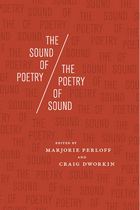
Sound—one of the central elements of poetry—finds itself all but ignored in the current discourse on lyric forms. The essays collected here by Marjorie Perloff and Craig Dworkinbreak that critical silence to readdress some of thefundamental connections between poetry and sound—connections that go far beyond traditional metrical studies.
Ranging from medieval Latin lyrics to a cyborg opera, sixteenth-century France to twentieth-century Brazil, romantic ballads to the contemporary avant-garde, the contributors to The Sound of Poetry/The Poetry of Sound explore such subjects as the translatability of lyric sound, the historical and cultural roles of rhyme,the role of sound repetition in novelistic prose, theconnections between “sound poetry” and music, between the visual and the auditory, the role of the body in performance, and the impact of recording technologies on the lyric voice. Along the way, the essaystake on the “ensemble discords” of Maurice Scève’s Délie, Ezra Pound’s use of “Chinese whispers,” the alchemical theology of Hugo Ball’s Dada performances, Jean Cocteau’s modernist radiophonics, and an intercultural account of the poetry reading as a kind of dubbing.
A genuinely comparatist study, The Sound of Poetry/The Poetry of Sound is designed to challenge current preconceptions about what Susan Howe has called “articulations of sound forms in time” as they have transformed the expanded poetic field of the twenty-first century.
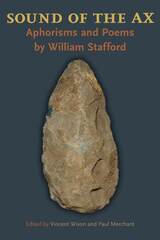
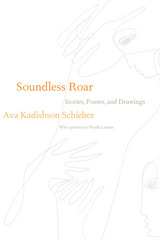
Schieber's drawings, paintings, poetry, and prose are all intimate reflections of one another. Her experience forged the unusual sense of time that shapes Schieber's stories. In her preface, Phyllis Lassner writes: "The timetable of Ava's stories often consists of circles within circles, of patterns of an intertwined past, the past present of hiding, and the present looking back at those distinctly separate but inseparable pasts."

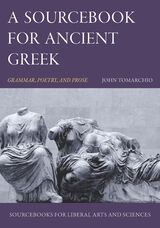
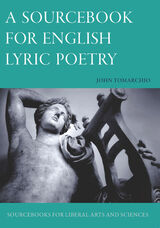
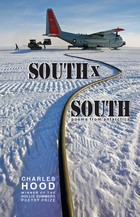
A vivid and insightful look at the culture and terrain of Antarctica, as well as the people who choose to live and work there, South × South celebrates and explores life at the extreme edge of our planet. Blending travel narrative, historical research, and the surprises of magical realism, Hood presents life in Antarctica and the history of polar aviation as both a miracle of achievement yet also as a way to understand humanity’s longing to be creatures of the heavens as well as the earth. South × South is poetry at its most inventive and surprising, insisting that the world is stranger and more glorious than we ever might have guessed.
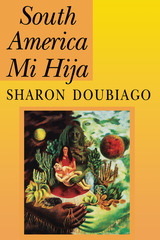
When Shawn Doubiago graduated from high school, she and her mother Sharon, embarked on a journey through Colombia, Ecuador, and Peru. In Cuzco, Peru, standing before an alter where the Incas had sacrifced their female virgins, the daughter asked, “Are there any good men?” South American Mi Hija is Sharon Doubiago’s reply.
Set amidst the mysteries and tragedies of South American culture, this book-length narrative poem is both an account of their journey and a feminist exploration of the struggle between the sexes.
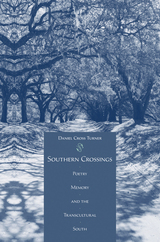
“Daniel Cross Turner has made a key contribution to the critical study and appreciation of the diverse field of contemporary Southern poetics. “Southern Crossings” crosses a gulf in contemporary poetry criticism while using the idea—or ideas, many and contrary—of “Southernness” to appraise poetries created from the profuse, tangled histories of the region. Turner’s close readings are dynamic, even lyrical. He offers a new understanding of rhythm’s central place in contemporary poetry while considering the work of fifteen poets. Through his focus on varied yet interwoven forms of cultural memory, Turner also shows that memory is not, in fact, passé. The way we remember has as much to say about our present as our past: memory is living, shifting, culturally formed and framed. This is a valuable and important book that entwines new visions of poetic forms with forms of regional remembrance and identity.”—Natasha Trethewey, Pulitzer Prize winner and author of Native Guard: Poems
Offering new perspectives on a diversity of recent and still-practicing southern poets, from Robert Penn Warren and James Dickey to Betty Adcock, Charles Wright, Yusef Komunyakaa, Natasha Trethewey, and others, this study brilliantly illustrates poetry’s value as a genre well suited to investigating historical conditions and the ways in which they are culturally assimilated and remembered.
Daniel Cross Turner sets the stage for his wide-ranging explorations with an introductory discussion of the famous Fugitive poets John Crowe Ransom, Allen Tate, and Donald Davidson and their vision of a “constant southerness” that included an emphasis on community and kinship, remembrance of the Civil War and its glorified pathos of defeat, and a distinctively southern (white) voice. Combining poetic theory with memory studies, he then shows how later poets, with their own unique forms of cultural remembrance, have reimagined and critiqued the idealized view of the South offered by the Fugitives. This more recent work reflects not just trauma and nostalgia but makes equally trenchant uses of the past, including historiophoty (the recording of history through visual images) and countermemory (resistant strains of cultural memory that disrupt official historical accounts). As Turner demonstrates, the range of poetries produced within and about the American South from the 1950s to the present helps us to recalibrate theories of collective remembrance on regional, national, and even transnational levels.
With its array of new insights on poets of considerable reputation—six of the writers discussed here have won at least one Pulitzer Prize for poetry—Southern Crossings makes a signal contribution to the study of not only modern poetics and literary theory but also of the U.S. South and its place in the larger world.
Daniel Cross Turner is an assistant professor of English at Coastal Carolina University. His articles, which focus on regional definition in national and global contexts and on aesthetic forms’ potential to record historical transitions, appear in edited collections as well as journals including Genre, Mosaic, the Southern Literary Journal, the Southern Quarterly, and the Mississippi Quarterly.
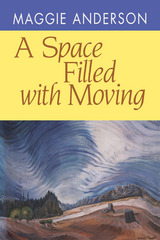
"We are struck by the generosity of a voice that manages to bridge the gap between a personal and a world view, a balance that reveals a narrator who is of the world yet not overwhelmed by it."
—Prairie Schooner
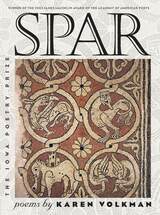
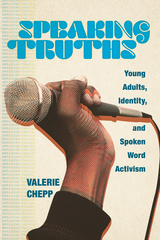
Drawing upon detailed observations and in-depth interviews, Chepp tells the story of a diverse group of young adults from Washington, D.C. who use spoken word to create a more just and equitable world. Outlining the contours of this approach, she interrogates spoken word activism’s emphasis on personal storytelling and “truth,” the strategic uses of aesthetics and emotions to politically engage across difference, and the significance of healing in sustainable movements for change. Weaving together their poetry and personally told stories, Chepp shows how poets tap into the beautiful, emotional, personal, and therapeutic features of spoken word to empathically connect with others, advance intersectional and systemic analyses of inequality, and make social justice messages relatable across a diverse public. By creating allies and forging connections based on friendship, professional commitments, lived experiences, emotions, artistic kinship, and political views, this activist approach is highly integrated into the everyday lives of its practitioners, online and face-to-face.
Chepp argues that spoken word activism is a product of, and a call to action against, the neoliberal era in which poets have come of age, characterized by widening structural inequalities and increasing economic and social vulnerability. She illustrates how this deeply personal and intimate activist approach borrows from, builds upon, and diverges from previous social movement paradigms. Spotlighting the complexity and mutual influence of modern-day activism and the world in which it unfolds, Speaking Truths contributes to our understanding of contemporary social change-making and how neoliberalism has shaped this political generation’s experiences with social injustice.
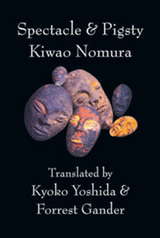
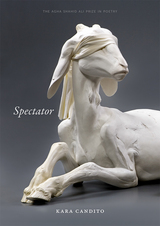
Although it ends with a marriage, Kara Candito’s second poetry collection is anything but a comedy. At the book’s center is the struggle of a U.S. citizen and a Mexican citizen to find a common space and language in their relationship while navigating the U.S. immigration system, a process that sometimes requires magical thinking just to endure. By employing a kind of documentary poetics that views the application process through different angles and perspectives, Candito crafts discourses around xenophobia, otherness, and national and ethnic identity.
“In the waiting room of the third government office, / you will invent your own religion,” writes Candito in “Ars Amatoria: So You Want to Marry a Foreign National,” a tragicomic sequence written in Roman-numeric fragments reminiscent of an official document’s formatting. Interspersed with moments of lyric urgency (“I am here to suffer more beautifully”) and disconcerting cinematic observation (“One wore an assault rifle across his back, // another pointed a video camera at our faces.”), Spectator charts the plural self’s course through a world of airplane travel, drug wars, and customs forms.
From Italy to Boston, Lorca’s Granada to New York, and the dusty streets of Mexico City to the snowy parking lots of the Midwest, the speakers of Spectator probe the jagged boundaries between past and present, observer and observed, and political and personal. As such, the book is an homage to anyone who’s been displaced or redefined by bureaucratic systems of power.
The poem "Monologue during a Blackout" (which appears in Spectator) was the winner of a Pushcart Award in 2014.
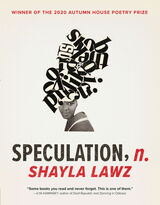
Shayla Lawz’s debut collection, speculation, n., brings together poetry, sound, and performance to challenge our spectatorship and the reproduction of the Black body. It revolves around a central question: what does it mean—in the digital age, amidst an inundation of media—to be a witness? Calling attention to the images we see in the news and beyond, these poems explore what it means to be alive and Black when the world regularly speculates on your death. The speaker, a queer Black woman, considers how often her body is coupled with images of death and violence, resulting in difficultly moving toward life. Lawz becomes the speculator by imagining what might exist beyond these harmful structures, seeking ways to reclaim the Black psyche through music, typography, and other pronunciations of the body, where expressions of sexuality and the freedom to actively reimagine is made possible. speculation, n. contends with the real—a refracted past and present—through grief, love, and loss, and it speculates on what could be real if we open ourselves to expanded possibilities.
speculation, n. won the 2020 Autumn House Poetry Prize, selected by Ilya Kaminsky.
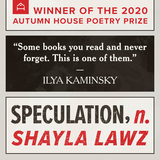
Shayla Lawz’s debut collection, speculation, n., brings together poetry, sound, and performance to challenge our spectatorship and the reproduction of the Black body. It revolves around a central question: what does it mean—in the digital age, amidst an inundation of media—to be a witness? Calling attention to the images we see in the news and beyond, these poems explore what it means to be alive and Black when the world regularly speculates on your death. The speaker, a queer Black woman, considers how often her body is coupled with images of death and violence, resulting in difficultly moving toward life. Lawz becomes the speculator by imagining what might exist beyond these harmful structures, seeking ways to reclaim the Black psyche through music, typography, and other pronunciations of the body, where expressions of sexuality and the freedom to actively reimagine is made possible. speculation, n. contends with the real—a refracted past and present—through grief, love, and loss, and it speculates on what could be real if we open ourselves to expanded possibilities.
speculation, n. won the 2020 Autumn House Poetry Prize, selected by Ilya Kaminsky.
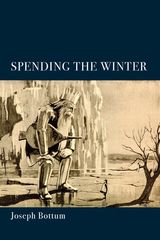
“Poems so severely beautiful that they become unforgettable after one reading. . . . If you’re a reader who loves poetry whatever mood it’s in, just open Spending the Winter anywhere to find poems that hurt, enlighten, and delight.” —Rhina P. Espaillat, author of Rehearsing Absence and winner of the T.S. Eliot Prize
“Joseph Bottum is a brilliant formalist, and to read him is to enter the world of the tried-and-true classics, all achieved with an amazingly contemporary ring. His Spending the Winter is a delight. Here is a poetry of elegy, humor, wit, political savvy, and vast learning.” —Paul Mariani, author The Great Wheel and winner of the John Ciardi Award
“Joseph Bottum’s Spending the Winter is a throwback to a time when lovers of poetry outside the literary establishment looked for poetry of depth, wit, and craft from the likes of Auden and Larkin. This is poetry from another age—an age when we expected intellectual, religious, and literary significance from our verse.” —A.M. Juster, author of Wonder and Wrath and winner of the Willis Barnstone Translation Prize
“Spending the Winter is a word-lover’s dream: Joseph Bottum’s poems pierce, probe, dazzle, and delight. They will open the eyes of your soul.” —Karen Swallow Prior, author of On Reading Well
“When reading Spending the Winter, I recalled C.S. Lewis’s description of joy as a wanting for something that is beyond this world. There’s a sense in these poems that things around us are fleeting, yet for that reason, the poems ask us to pay all the more attention.” —Jessica Hooten Wilson, author of Giving the Devil his Due
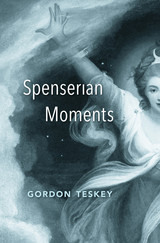
From the distinguished literary scholar Gordon Teskey comes an essay collection that restores Spenser to his rightful prominence in Renaissance studies, opening up the epic of The Faerie Queene as a grand, improvisatory project on human nature, and arguing—controversially—that it is Spenser, not Milton, who is the more important and relevant poet for the modern world.
There is more adventure in The Faerie Queene than in any other major English poem. But the epic of Arthurian knights, ladies, and dragons in Faerie Land, beloved by C. S. Lewis, is often regarded as quaint and obscure, and few critics have analyzed the poem as an experiment in open thinking. In this remarkable collection, the renowned literary scholar Gordon Teskey examines the masterwork with care and imagination, explaining the theory of allegory—now and in Edmund Spenser’s Elizabethan age—and illuminating the poem’s improvisatory moments as it embarks upon fairy tale, myth, and enchantment.
Milton, often considered the greatest English poet after Shakespeare, called Spenser his “original.” But Teskey argues that while Milton’s rigid ideology in Paradise Lost has failed the test of time, Spenser’s allegory invites engagement on contemporary terms ranging from power, gender, violence, and virtue ethics, to mobility, the posthuman, and the future of the planet. The Faerie Queene was unfinished when Spenser died in his forties. It is the brilliant work of a poet of youthful energy and philosophical vision who opens up new questions instead of answering old ones. The epic’s grand finale, “The Mutabilitie Cantos,” delivers a vision of human life as dizzyingly turbulent and constantly changing, leaving a future open to everything.
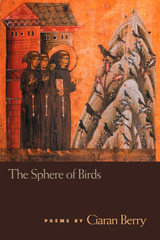
The Sphere of Birds, Ciaran Berry’s debut collection of poems, effortlessly moves back and forth between here and there, then and now, the personal and the historic, the modern and the mythic.
Berry imagines the transatlantic journeys of John James Audubonand reveals his own heartfelt experience moving from his first house. The poems take as their subject such varied experiences as an eye exam in Manhattan and chasing rabbits around a beach in Donegal. These poems have a strong sense of place, whether it’s the imagined space of Coney Island in 1903 or the playground of Berry’s childhood convent school.
The Sphere of Birds delights in forging unlikely links, earthed in the stuff of paintings and in the lives of poets, artists, and the occasional saint. Drawing on the poet’s life in Ireland and the United States, the poems explore the joy and grief found in those places.
Moving from rural Ireland to the heart of New York City, from local detail to historical specifics, and from the experienced occasion to the imagined or interpreted event, Berry’s poems effectively master shifts in both time and space. Berry delves into the lives of artists, obscure historical figures, and other poets for inspiration. He embraces elements of both Irish and American poetry, paying tribute as much to the spirit of Larry Levis as to that of W. B. Yeats.
Accessible, immediate, and visceral, The Sphere of Birds offers a musicality that is increasingly rare in contemporary poetry.
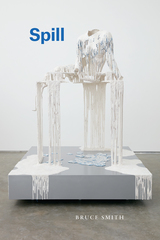
Spill is a book in contradictions, embodying helplessness in the face of our dual citizenship in the realms of trauma and gratitude, artistic aspiration and political reality. The centerpiece of this collection is a lyrical essay that recalls the poet’s time working at the Federal Penitentiary at Lewisburg in the 1960s. Mentored by the insouciant inmate S, the speaker receives a schooling in race, class, and culture, as well as the beginning of an apprenticeship in poetry. As he and S consult the I Ching, the Book of Changes, the speaker becomes cognizant of other frequencies, other identities; poetry, divination, and a synchronous, alternative reading of life come into focus. On either side of this prose poem are related poems of excess and witness, of the ransacked places and of new territories that emerge from the monstrous. Throughout, these poems inhabit rather than resolve their contradictions, their utterances held in tension “between the hemispheres of songbirds and the hemispheres of men.”
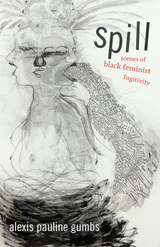
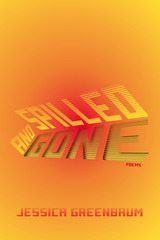
At heart, the poems themselves seek peace through close observation's associative power to reveal cohering relationships and meaning within the 21st century-and during its dark turn. In the everyday tally of "the good against the violence" the speaker asks, "why can't the line around the block on the free night/ at the museum stand for everything, why can't the shriek /of the girls in summer waves . . . / be the call and response of all people living on the earth?" A descendant of the New York school and the second wave, Greenbaum "spills" details that she simultaneously replaces-through the spiraling revelations only poems with an authentic life-force of humanism can nurture.
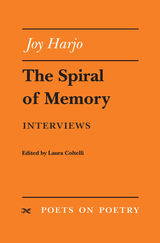

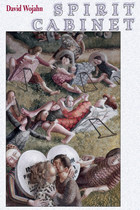
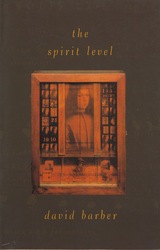
The Spirit Level is the first collection by an exciting new voice in American poetry. Representing the world as a place of feverish energies, David Barber creates a virtuoso tension between playful, sometimes flamboyant, diction, and the seriousness of his concerns. Balance and grace, but also wit and verbal energy, and a deft hand at shaping the poem, make Barber's first book a superb debut.
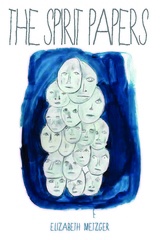
All right, I'm a little afraid.
It's the zeroing in of All That Could
Possibly Go Wrong vs. Myself.
—"Small Talk with an Imagined Son"
The Spirit Papers explores the magical thinking that precedes impending and inevitable loss, the taboo fantasia that occurs in the crippling timelessness of anticipation. Grieving for the future with a spiritual clarity characterized by ritual and doubt, Metzger's lines are chameleons to every feeling. In the interminable window of expecting the unexpected, the poems ultimately materialize the very events they wish to ward off. The Spirit Papers chases mortality with equal parts disbelief and love.
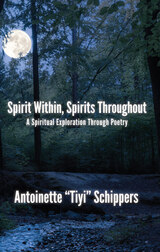
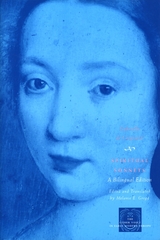
Spiritual Sonnets presents the first English translation of 129 of Coignard's highly autobiographical poems, giving us a startlingly intimate view into the life and mind of this Renaissance woman. The sonnets are all written "in the shadow of the Cross" and include elegies, penitential lyrics, Biblical meditations, and more. Rich with emotion, Coignard's poems reveal anguished moments of loneliness and grief as well as ecstatic experiences of mystical union. They also reveal her mastery of sixteenth-century literary conventions and spiritual traditions.
This edition, printed in bilingual format with Melanie E. Gregg's translations facing the French originals, will be welcomed by teachers and students of poetry, French literature, women's studies, and religious and Renaissance studies.
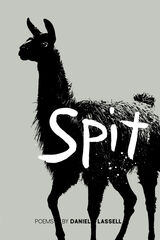
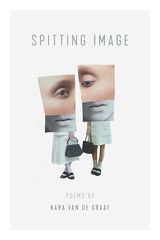
Taking as its primary theme the exploration of the female body in current culture, Spitting Image considers the myriad intersections of the body and gender, desire, relationships, and otherness. Van de Graaf interrogates underrepresented elements of the female experience, especially the physical, rhetorical, and aesthetic limitations of fatness in poetry and other arts. She then complicates those limitations through her use of innovative forms and imaginative verse, implicitly calling for poetry to engage with the female form in fresh ways. Throughout, Van de Graaf’s poems ask: In a time where we have more agency to define ourselves than ever before, what barriers still remain? What do our bodies mean to who we are?
At turns oblique and direct, Van de Graaf’s poems strive to create space for themselves not only in the field of contemporary poetry but also in a larger world that has been prone to ignoring or shaming women for their bodies. That these poems succeed on both counts is a testament to this remarkable new poet, who claims “That millimeter of space that means / all of us are apart, that means / we can never really touch / anything. . . . Yes, I want that, too.”
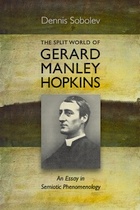
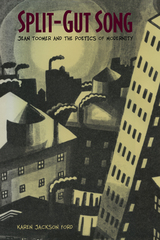
A deft study of the evolving literary aesthetic of one of the first avant-garde black writers in America.
In Split-Gut Song, Karen Jackson Ford looks at what it means to be African American, free, and creative by analyzing Jean Toomer's main body of work, specifically, his groundbreaking creation Cane. When first published in 1923, this pivotal work of modernism was widely hailed as inaugurating a truly artistic African American literary tradition. Yet Toomer's experiments in literary form are consistently read in terms of political radicalism—protest and uplift—rather than literary radicalism.
Ford contextualizes Toomer's poetry, letters, and essays in the literary culture of his period and, through close readings of the poems, shows how they negotiate formal experimentation (imagism, fragmentation, dialect) and traditional African American forms (slave songs, field hollers, call-and-response sermons, lyric poetry). At the heart of Toomer's work is the paradox that poetry is both the saving grace of African American culture and that poetry cannot survive modernity. This contradiction, Ford argues, structures Cane, wherein traditional lyric poetry first flourishes, then falters, then falls silent.
The Toomer that Ford discovers in Split-Gut Song is a complicated, contradictory poet who brings his vexed experience and ideas of racial identity to both conventional lyric and experimental forms. Although Toomer has been labelled a political radical, Ford argues that politics is peripheral in his experimental, stream-of-consciousness work. Rather Toomer exhibits a literary radicalism as he struggles to articulate his perplexed understanding of race and art in 20th-century America.

What lies beneath the surface of Masters' timeless classic
One of the most striking and original achievements in American poetry is now available in a remarkable edition that comprehends the poet and his book in an entirely new way.
This edition of Spoon River Anthology probes the social background of the small-town world that Edgar Lee Masters loved and hated--and finally transmuted into powerful literary art. Extensive annotations identify the people whose lives inspired the 243 poetic accounts of frustration, violence, struggle, and triumph that shocked American readers.
The most extraordinary feature of this edition is the extensive introduction that provides the key to this misunderstood American classic. The book's relationship to Whitman is clearly established, and the important influences of Browning, Goethe, Spinoza, and others are revealed for the first time. John Hallwas' approach combines cultural, biographical, philosophical, psychoanalytic, mythic, and symbolic insights--and concludes with a stunning reassessment of "Our New Poet."
The annotated Spoon River Anthology supersedes seventy-five years of largely misdirected critical commentary. It will send a new generation of readers back to this surprisingly complex book that probes so deeply into the American consciousness.
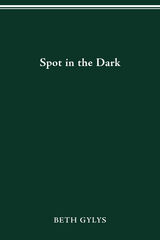
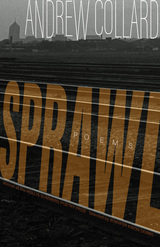
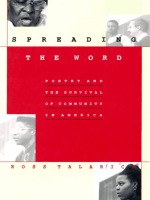
Drawing on his workshops in Rochester, Talarico describes a unique approach for eliciting poetry from people of many ages and backgrounds—particularly underpriviledged urban kids and the elderly. The process—from dialogue to self-expression to publication to public event—illuminates the urgency and meaning of releasing the spirit captured in each man and woman and child’s experience. "Some people say that Ross Talarico has done the impossible," the Today Show remarked of his success in Rochester; and with this book Talarico offers the same opportunity to others. Teachers, community leaders, parents, and children will be able to follow his practical, hands-on approach to encouraging self-expression in diverse, even unlikely, settings. They will see here how poetry is indeed relevant, ever more crucial to our identity as the culture evolves—how it is, finally, the place where the inarticulate can come to speak for themselves.
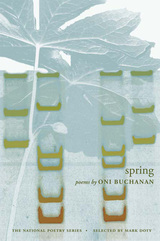
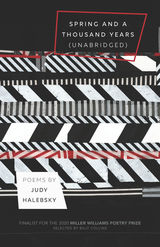
A translator’s notebook, an almanac, an ecological history, Judy Halebsky’s Spring and a Thousand Years (Unabridged) moves between multiple intersections and sign systems connected in a long glossary poem that serves as the book’s guide to what is lost, erased, or disrupted in transition both from experience to written word and from one language, location, and time period to another.
Writers Li Bai, Matsuo Bashō, Sei Shōnagon, and Du Fu make frequent appearances in centuries ranging from the eighth to the twenty-first, and appear in conversation with Grace Paley, Donald Hall, and Halebsky herself, as the poet explores subjects ranging from work and marriage to environmental destruction. Asking what would happen if these poets—not just their work—appeared in California, the poems slip between different geographies, syntaxes, times, and cultural frameworks.
The role of the literary translator is to bring text from one language into another, working to at once shift and retain the context of the original—from one alphabet to another, one point in time to another. These are poems in homage to translation; they rely on concepts that can bridge time and space, and as a result are as likely to find meaning in donuts or Zumba as they are to find it in the ocean. Spring and a Thousand Years (Unabridged) finds reasons for hope not in how the world should be, but in how it has always been.


Austrian writer Ilse Aichinger (1921–2016) was a member of the Gruppe 47 writers’ group, which sought to renew German-language literature after World War II. From a wide-ranging literary career that encompassed all genres, Squandered Advice was Aichinger’s sole poetry collection. The book gathers poems written over several decades, yet Aichinger’s poetic voice remains remarkably consistent, frequently addressing us or a third party, often in the imperative, with many poems written in the form of a question. Even though they use free verse throughout, the poems are still tightly structured, often around sounds or repetition, using spare language. Phrases are often fragmentary, torn off, and juxtaposed as if in a collage. Isolated and haunting, the images are at times everyday, at other times surreal, suggesting dreams or memories. The tone ranges from reassuring and gentle to disjointed and disturbing, but the volume was carefully composed by the author into an integral whole, not chronological but following its own poetic logic. This new translation makes Aichinger’s critically acclaimed book, which has inspired poets in the German-speaking world for decades, available to English-language readers for the first time.


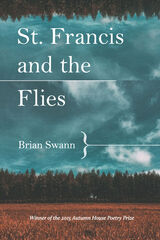
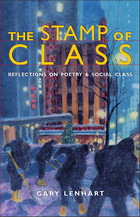
-Lorenzo Thomas
The Stamp of Class explores the nature of reading poetry in the context of class and its themes and sheds new light on how this important yet little-heralded subject affects the poet's life and work.
While numerous works have taken up the question of race and gender as they relate to literary creation, this is the first book of its kind to probe the interplay between class and American poetry. Author Gary Lenhart considers poetry and class across a wide variety of time periods and poetic trends and reflects on a range of influential poets from the eighteenth to the twenty-first centuries.
The essays in The Stamp of Class deal with the question of class as reflected in the works of Tracie Morris, Tillie Olsen, Melvin Tolson, William Carlos Williams, Walt Whitman, and others. The work is rooted in the author's own experiences as a working-class poet and teacher and is the result of more than a decade of exploration.
Poet and scholar Gary Lenhart is Lecturer in English at Dartmouth College in Hanover, New Hampshire. His most recent books of poetry are Father and Son Night, Light Heart, and One at a Time. His essays and reviews have appeared in numerous magazines and journals, including the American Poetry Review, American Book Review, and Exquisite Corpse.
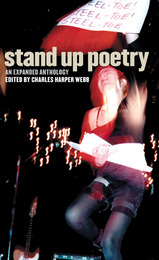
Contributors:
Kim Addonizio
Dorothy Barresi
Charles Bukowski
Maxine Chernoff
Lucille Clifton
Billy Collins
Philip Dacey
Stephen Dunn
Deborah Harding
Edward Hirsch
Tony Hoagland
Allison Joseph
Jesse Lee Kercheval
Lisa Lewis
Bill Mohr
Ed Ochester
Lawrence Raab
Maureen Seaton
James Tate
Rafael Zepeda
plus many more
Witty, sexy, gritty, outrageous, emotional, hilarious, honest, courageous. What do these words describe? A growing movement in American literary circles: Stand Up Poetry.
Over twenty years ago, Charles Harper Webb discovered a vibrant and invigorating poetry scene in southern California. Featuring some of America's best contemporary poets, this scene, according to Webb, “showed insight, imagination, craft, philosophical depth, but most of all, it was funny, and it was fun.” Stand Up Poetry: The Poetry of Los Angeles and Beyond (1990) was the result of Webb's enthusiasm for this poetic genre.
A decade later, the popularity of performance poetry, poetry slams, and poetry readings is on the rise, and Webb has expanded his anthology to include a greater sampling of poets from across the country. From Charles Bukowski to Billy Collins and Allison Joseph, the poets included in this collection are popular and emerging, classical and experimental, young and old; yet all exhibit the characteristics so important to Stand Up Poetry—humor, performability, accessibility, individuality. Most important, these poems are enjoyable when read silently or aloud, on the page or on the stage.
Stand Up Poetry: An Expanded Anthology is at its core a celebration of poetry offering readers a wonderful lesson in the power of words to entertain and inspire.
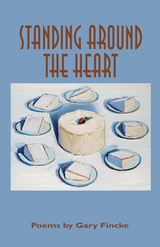
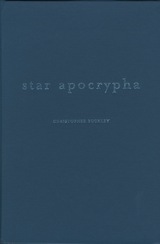
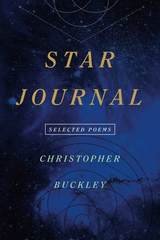
Past praise from Philip Levine:
“The poems are modest, straight forward, intensely lyrical and totally accessible. . . . This is a humble poetry of great truths and profound emotions that never overstates its concerns for the events both in and above the world. It rewards countless readings and never betrays itself.”
—Ploughshares

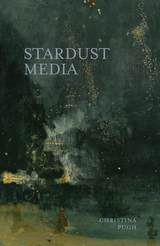
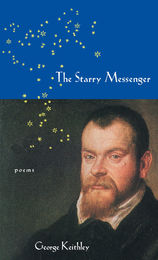
--American Poetry Review

These poems give voice to the life of the first woman to fly faster than the speed of sound. While Jacqueline Cochran was alive, no man or woman in the world could match her records for speed, distance, and altitude flying. Founder and director of the Women’s Airforce Service Pilots (WASP) during World War II, Cochran continued to fly competitively until she was sixty, owned and operated her own line of designer cosmetics for three decades, ran for Congress, and generally placed herself on the path of history. Having begun life as a foundling in the crushing poverty of a lumber company town of the Florida panhandle, she described her life as “a passage from sawdust to stardust.” Yet after her death she has barely been remembered.
Poet Enid Shomer brings back this mercurial, dazzling, powerful woman. These poems speak in her voice and in the voices of her mother, teachers, husband, confidants, and political opponents, shaped by Shomer’s consummate formal control and stunning lyricism.
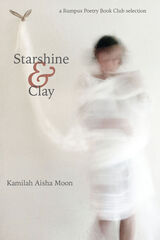
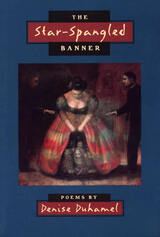
The Star-Spangled Banner, Denise Duhamel's sixth book of poems, is about falling in love, American-style, with someone who is not American.
In the title poem, a small American girl mishears the first line of "The Star-Spangled Banner" as "José, can you see?", which leads her to imagine a foreign lover of an American woman dressed in a star-spangled gown. The misunderstandings caused by language recur throughout the book: contemplating what "yes" means in different cultures; watching Nickelodeon's "Nick at Nite" with a husband who grew up in the Philippines and never saw The Patty Duke Show; misreading another poet's title "The Difference Between Pepsi and Coke" as "The Difference Between Pepsi and Pope" and concluding that "Pepsi is all for premarital sex. / The Pope won't stain your teeth." Misunderstandings also abound as characters mingle with others from different classes. In "Cockroaches," a father-in-law refers to budget-minded American college students backpacking in Europe as cockroaches, not realizing his daughter-in-law was once, not so long ago, such a student/roach herself.
With welcome levity and refreshing irreverence, The Star-Spangled Banner addresses issues of ethnicity, class, and gender in America.
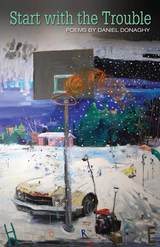
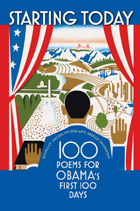
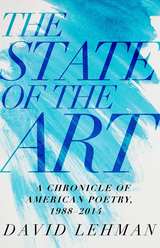
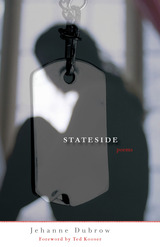
Winner, 2012 Alice Fay Di Castagnola Award from the Poetry Society of America
Winner, Individual Artist's Award from the Maryland State Arts Council
First Prize, Anna Davidson Rosenberg Poetry Award for Poems on the Jewish Experience (for three poems from her manuscript-in-progress, "The Arranged Marriage")
Although the poems in Stateside are concerned with a husband's deployment to the war in Iraq, Jehanne Dubrow's riveting collection is driven more by intellectual curiosity and emotional exploration than by any overt political agenda. The speaker in these poems attempts to understand her situation within the long history of military wives left to wait and wonder – Penelope is a model, but also a source of mystery. These poems are dazzling in their use of form, their sensual imagery, and their learnedness, and possess a level of subtlety and control rarely found in the work of a young poet. Dubrow is fearless in her contemplation of the far-reaching effects of war, but even more so in her excavation of a marriage under duress.
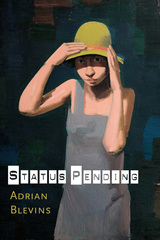
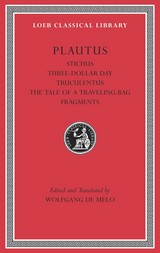
Funny happenings.
The rollicking comedies of Plautus, who brilliantly adapted Greek plays for Roman audiences ca. 205–184 BC, are the earliest Latin works to survive complete and are cornerstones of the European theatrical tradition from Shakespeare and Molière to modern times. This fifth volume of a new Loeb edition of all twenty-one of Plautus’ extant comedies presents Stichus, Three-Dollar Day, Truculentus, The Tale of a Traveling-Bag, and fragments with freshly edited texts, lively modern translations, introductions, and ample explanatory notes.

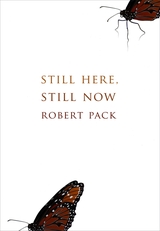
The first section of the book contains traditional lyrics that celebrate family ties and seek consolations for the passing of personal and evolutionary time. The poems in this group address a named or unnamed auditor in a voice of intimate engagement. Featuring the most narrative selections in the book, the second section consists of fable-like stories, rich with innuendo and implication. The characters in these poems make choices that press against the events and circumstances that challenge and define them. Embodying what Harold Bloom has called Pack’s “courage to surmount suffering,” the poems of the third section are largely devoted to biblical themes and philosophical speculations on the meaning of happiness and the uses of suffering. Here, Pack’s empathy for the human condition as well as his forebodings about the prospect of human survival are on poignant display. The final section of the book turns to Pack's abiding interest in landscape and the ways in which the place one inhabits contains and animates our individual lives.
Ripe with many years, Pack remains a vital presence in American letters. Still Here, Still Now is an affecting and graceful addition to the oeuvre of a poet whose compelling and distinct voice will continue to resonate among his loyal readers.
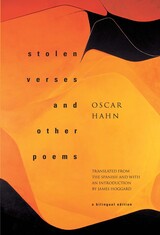
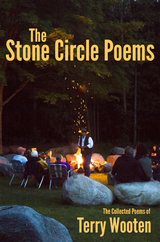

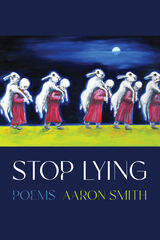
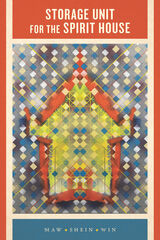
Assemblages of both earthly and noncorporeal possessions throughout the collection become resonant and alive, and Win must summon “a circle of drums and copper bells” to appease the nats who have moved into a long-ago family house. This careful curation of unlikely objects and images becomes an act of ritual collection that uses language to interrogate how pain in life can transform someone into a nat or a siren that lives on. Restrained lines request our imagination as we move with the poet through haunted spaces and the objects that inhabit them.
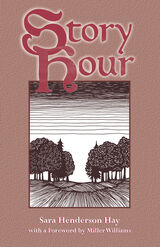

The literary jewel of Telegu civilization, translated for the first time into any language.
Manucaritramu, or The Story of Manu, by the early sixteenth-century poet Allasani Peddana, is the definitive literary monument of Telugu civilization and a powerful embodiment of the imperial culture of Vijayanagara, the last of the great premodern south Indian states. It is the story of Svarochisha Manu, who ruled over the previous cosmic age and who serves here as prototype for the first human being. Peddana explores the dramatic displacements, imaginative projections, and intricate workings of desire necessary for Manu’s birth and formation. The Story of Manu is also a book about kingship and its exigencies at the time of Krishnadevaraya, the most powerful of the Vijayanagara rulers, who was a close friend and patron of the poet.
The Story of Manu, presented in the Telugu script alongside the first translation into any language, is a true masterpiece of early modern south Indian literature.
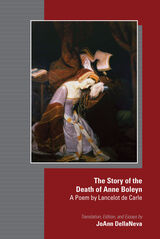
The Story of the Death of Anne Boleyn is a critical edition and translation of a long narrative poem written by the secretary to the French ambassador in London within two weeks of Anne Boleyn’s execution. It was intended as a diplomatic dispatch, relating the astonishing news of the queen’s demise (along with that of five alleged lovers). Uniquely among diplomatic correspondence, this dispatch was written in verse form. It thus straddles the domains of literature and history, of chronicle and fiction.
The base text for this edition is a previously unstudied manuscript housed at the British Library. Variants are given from all other known manuscripts found in Europe, including several key verses that were previously unpublished and that shed new light on the interpretation of the poem. The book features a sense-for-sense translation into modern English in free verse form, along with extensive explanatory notes. It also provides a study focusing on the historical background to the poem, an essay on the poet and the reception of his work, and a literary analysis of the poem.

a legislative party bus of palliative care. There standing
by the advent tent are penitential dentures, striking in
their likeness to entire choking towns. Backed down
and bound the carnival carnivorous is glowing, a
midway ways away alit and stilted by the night.
—Excerpt from “Trying to I Can’t Hit Anything Yet the Bodies Pile Up”
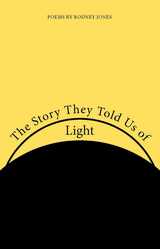
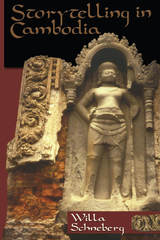
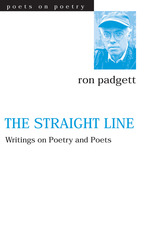
But along with the playful wit comes Padgett's serious fascination with how words work. Essays discuss such subjects as the otherness of languages; French poets and their relationship to Cubist painters; an afternoon with the poet Edwin Denby; a tribute to Ted Berrigan; twentieth-century modernism; and suggestions for using the computer to write poetry.
The book concludes with pieces that Padgett has written during his thirty years as a teacher of poetry. Essays explore the unexpected relationships between poetry and dance; the practical value of using "gimmicks" to inspire poetry writing; and some radical and entertaining ideas for innovative ways to read creatively.
Ron Padgett is Publications Director, Teachers and Writers Collaborative. His books include Albanian Diary, Creative Reading, and Old Faithful: 18 Writers Present Their Favorite Writing Assignments.
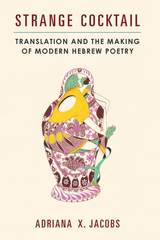
For centuries, poets have turned to translation for creative inspiration. Through and in translation, poets have introduced new poetic styles, languages, and forms into their own writing, sometimes changing the course of literary history in the process. Strange Cocktail is the first comprehensive study of this phenomenon in modern Hebrew literature of the late nineteenth century to the present day. Its chapters on Esther Raab, Leah Goldberg, Avot Yeshurun, and Harold Schimmel offer close readings that examine the distinct poetics of translation that emerge from reciprocal practices of writing and translating. Working in a minor literary vernacular, the translation strategies that these poets employed allowed them to create and participate in transnational and multilingual poetic networks. Strange Cocktail thereby advances a comparative and multilingual reframing of modern Hebrew literature that considers how canons change and are undone when translation occupies a central position—how lines of influence and affiliation are redrawn and literary historiographies are revised when the work of translation occupies the same status as an original text, when translating and writing go hand in hand.
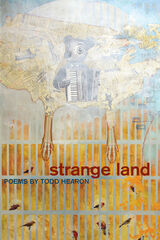
Todd Hearon’s haunting debut collection chronicles the twin paths of isolation and desire in the search for meaning and union with others. On his pilgrimage through the lost worlds of earth and the soul, the speaker encounters drought in both the literal and spiritual sense as he confronts desolate landscapes, from the brown remnants of ruined cities, to the depths of the human heart and man’s capacity for utter destruction. Yet even though he frequently encounters darkness, he never ceases to seek beauty. He is a man who wears many faces, from Adam, staring down a bleak future bereft of Paradise, to the doomed poet Shelley, drowned off the coast of Italy. He speaks as a man adrift in his own life, seeking an answer to his emptiness, an estranged traveler through memory and longing. Lyrical and intense, Strange Land is a quest for understanding and human connection.
Strange Land
It goes without saying
a word: the world under cover
of midnight snow, what we have known
of pageantry and lilac, leaf and song
subsumed in starless silence.
Waking at dawn into the tremulous blue
of the room, as in earth’s afterglow,
we lie, lidless, listening, as crows
call out the ear’s horizons.
What year is it? Into what country were we born
and now must make our way? Outside the pane
the stillness feels ancestral but the ghosts
not yours, not mine. My émigré,
we are cut off. An ocean to the east
churns in chiaroscuro while unseen
ranges to the south deflect our passage,
what passage might have been.
This country seems the passing of a dream
to a moonscape’s still immitigable white,
a land’s amnesia where against the sky
three needling black birds fly
and slip like an ellipsis out of sight.
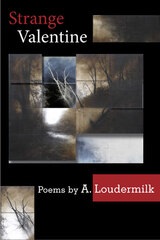
A. Loudermilk utilizes confessional, persona, and third-person poems throughout this intimate yet socially conscious first collection. Strange Valentine is an indictment of love, fixating on the paranoid relationship between body and state, on the dangerous relationship between family history and sexual history, and on the elusive relationship between gender and sexuality—specifically as experienced in the working-class towns of the southernmost Midwest. Riding highly crafted rhythms in sound, line, and invented form, Loudermilk’s multivoiced storytelling resounds with the characters and heartbreaks of the heartland.
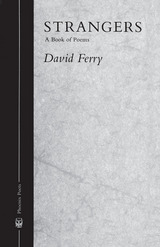
"Strangers is a remarkably good book for a reader sufficiently attentive to hear its quiet power, to let it work in its distinctive way."—Boston Globe
"The poems of David Ferry's Strangers are in fact one book, and it is a splendid one. There is the same austere and poignant voice throughout, asking the unanswerable things, speaking of all that is withheld from us, confronting the unknownness that dwells even in the familiar and dear. Painful and touching, the book offers a distinctive vision which is at the same time inescapably true."—Richard Wilbur
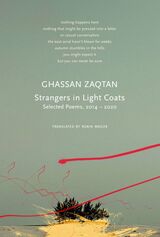
Ghassan Zaqtan is not only one of the most significant Palestinian poets at work today, but one of the most important poets writing in Arabic. Since the publication of his first collection in 1980, Zaqtan’s presence as a poet has evolved with the same branching and cumulative complexity as his poems—an invisible system of roots insistently pushing through the impacted soil of political and national narratives.
Strangers in Light Coats is the third collection of Zaqtan’s poetry to appear in English. It brings together poems written between 2014 and 2020 drawn from six volumes of poetry. Catching and holding the smallest particles of observation and experience in their gravity, the poems sprout and grow as though compelled, a trance of process in which fable, myth, and elegy take form only to fall apart and reconfigure, each line picked apart by the next and brought into the new body.
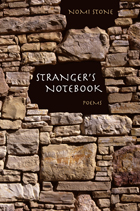
Stone's moving debut collection of verse is inspired by her encounter with perhaps the last cohesive, traditional Jewish community in the Middle East and North Africa. According to their story of origin, a handful of exiles arrived on the island of Djerba, Tunisia, in 586 B.C., carrying a single stone from the destroyed Temple in Jerusalem. Drawing from this cosmology, the poems follow a stranger who arrives into an ancient community that is both at home and deeply estranged on the island. Its people occupy the uneasy space of all insular communities, deciding when to let the world in and when to shut it out. The poems are about the daily lives and deeper cosmos of the Jews of Djerba as well as the Muslims next door. In her exploration, Stone sees vivid recurring images of keys, stones, homes, the laughter of girls, the eyes of men, the color blue, and the force of blood or bombs. With this journey of faith, doubt, longing, and home, Stone has brought readers a rare look into a story that resonates powerfully with questions of cultural preservation and coexistence.
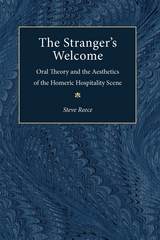
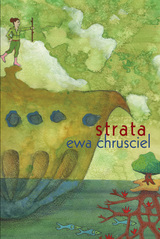

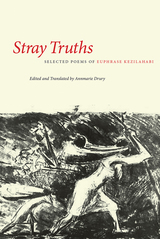


“The mystery that Abughattas composes is always moving toward an impossible freeing of the self from its numerous frames. Yet frame by frame . . . she suspends our disbelief, catalogs those potentialities in an America always ready to shoot, direct, and produce the film of itself. Strip is ‘in love with possibility,’ ‘in praise of here I am, here I’ve been,’ USA style. Strip celebrates the body—its rise and fall, ebb and flow, in a carnival of parties—restlessly, shamelessly, searching for a way out…. Even as Abughattas claims that ‘I can’t believe sometimes I have a body,’ her poems teem with an awareness of the body’s unavoidable centrality in our lives—in how we view our lives, and how others view them; in how they progress, and how they end; in how they become meaningful, and how they are stripped of meaning. And no stripping escapes memory. Whether in terms of dispossession or sexuality, admiration or pity, Abughattas renders her treatment of the body with candor and poignancy. . . . The most startling moments in Abughattas’s poems, however, depend not on shocking or intimate details—but on the ‘I’ pulling away from the self, abandoning the ego, and gazing outward. She tries to see something else, to escape the body’s restraints.”
—Fady Joudah and Hayan Charara, from the Preface
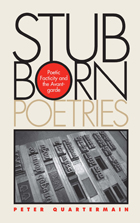
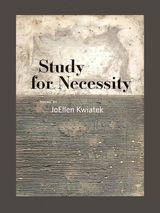
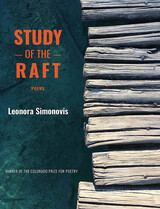
In Study of the Raft, Leonora Simonovis’s poems weave the outer world of a failed political revolution in her native country, Venezuela, with an inner journey into the memories of migration and exile, of a home long gone, and of family relations, especially among womxn. The collection explores the consequences of colonization, starting with “Maps,” a poem that speaks of loss and uprootedness, recalling a time when indigenous lands were stolen and occupied, where stories were lost as new languages and beliefs were imposed on people. The politics of the present are also the politics of the past, not just in the Venezuelan context, but in many other Latin American and Caribbean countries. It is the reality of all indigenous people. Simonovis’s poems question the capacity of language to represent the complexity of lived experience, especially when it involves living from more than one language and culture. These poems wrestle with questions of life and death, of what remains after what and whom we know are no longer with us, and how we, as humans, constantly change and adjust in the face of uncertainty.
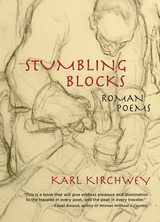
As in his 1998 New York Times Notable Book The Engrafted Word, the city of Rome becomes a lens through which to understand the contemporary human experience and the upheavals of human loss. Stumbling Blocks takes as its starting point the shattered ancient Roman ruins described in Renaissance poet Joachim du Bellay's celebrated sonnet—a landscape of death feeding upon itself and restored to life in the imagination of each successive generation to salvage its own narratives.
Kirchwey builds new arches and mythological intersections in exquisite poems that take long walks in the Eternal City, through landscapes far away and deep within. This gorgeous collection takes us back in time and brings us forward through our Old and New Worlds, revealing through the religion of art both beauty and atrocity.

Subject/Object and Beyond brings together essays by established and emerging scholars to honor the exceptionally rich contributions and career of scholar Colette H. Winn. It also celebrates fifty years of sustained scholarship on early modern women, along with the foundation of Women’s Studies as a recognized academic discipline in North America. The collection comprises seventeen articles that explore multiple perspectives on early modern women, including their writings, translations, reception, and contributions to various fields, including literature, music, politics, religion, and science.
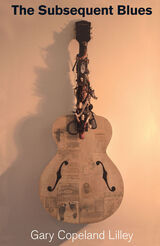
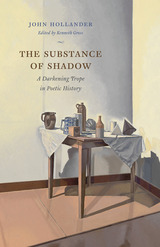
Shadow shows itself here in myriad literary identities, revealing its force as a way of seeing and a form of knowing, as material for fable and parable. Taking up a vast range of texts—from the Bible, Dante, Shakespeare, and Milton to Poe, Dickinson, Eliot, and Stevens—Hollander describes how metaphors of shadow influence our ideas of dreaming, desire, doubt, and death. These shadows of poetry and prose fiction point to unknown, often fearful domains of human experience, showing us concealed shapes of truth and possibility. Crucially, Hollander explores how shadows in poetic history become things with a strange substance and life of their own: they acquire the power to console, haunt, stalk, wander, threaten, command, and destroy. Shadow speaks, even sings, revealing to us the lost as much as the hidden self.
An extraordinary blend of literary analysis and speculative thought, Hollander’s account of the substance of shadow lays bare the substance of poetry itself.
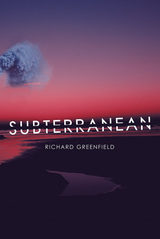

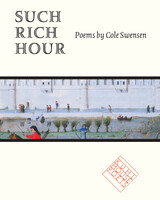
Covering a variety of subjects—from the plague and the first danse macabre to the development of perspective and recipes for pigments—the poems in Cole Swensen's new collection are set in fifteenth-century France and explore the end of the medieval world and its gradual transition into the Renaissance. The collection is loosely based on the calendar illuminations from the Très Riches Heures, the well-known book of hours, and uses them to explore the ways that the arts—visual and verbal—interact with history, at times prefiguring it, at times shaping it, and at times offering wry commentary or commiseration.
READERS
Browse our collection.
PUBLISHERS
See BiblioVault's publisher services.
STUDENT SERVICES
Files for college accessibility offices.
UChicago Accessibility Resources
home | accessibility | search | about | contact us
BiblioVault ® 2001 - 2024
The University of Chicago Press









